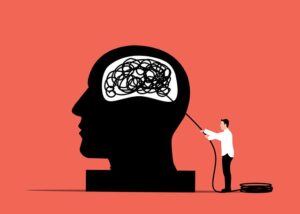The physical and emotional toll that constant change takes on our bodies and minds is what causes stress.
It is true that stress can have a positive impact on behaviour, such as encouraging a person to take action quickly or providing a new perspective on a problem, but it is more harmful than beneficial.
Emotions such as anger, mistrust, rejection and depression can be triggered by stress and physical symptoms such as skin rashes and migraines.
Stress can lead to heart problems, strokes, and hypertension, among other things.
 Despite the fact that stress is a natural part of human existence, it is not a necessity.
Despite the fact that stress is a natural part of human existence, it is not a necessity.
In order to combat stress and its negative consequences, it is important to learn how to deal with change well.
If we want to meet deadlines, compete and achieve high levels of performance, we need a certain amount of pressure and excitement.
We’d get bored and demotivated if there wasn’t some sort of pressure.
What we need to do is channel stress, manage it, so that it motivates us but doesn’t break us down!
Here are a few easy ways to de-stress:
To begin, take stock of your current level of stress and how you respond to it.
Get to the bottom of what’s bothering you and find a way to fix it.
Do not let yourself become frustrated by your inability to affect change; instead, find ways to work around or calmly deal with the problem.
In the end, saying “no” saves time and aggravation. Also, learn how and when to relax, so that you don’t overwork yourself and burn out.
Don’t forget to take some time to just be you!
Make an effort to engage in activities that you truly enjoy.
You can also use stress-relieving tools to help you cope with your problems.
One way to lessen stress is to take a more moderate and positive approach to stressful situations.
When you’re feeling stressed or agitated, try slow, deep breathing to unwind and gain control over your reactions.
Check to see if you’ve got enough energy in your body.
Stress can be reduced by engaging in regular physical activity, maintaining a healthy weight, practising healthy eating habits, and finding time for relaxation.
If you’re living a healthy and happy life, you’ll be less vulnerable!
Also, stay away from nicotine and alcohol, which may temporarily alleviate stress, but will have no long-term beneficial effect on your health.
Also, if you’re worried about your emotional well-being, make sure you have a large group of close friends and family who can lean on you.
Be realistic and don’t get discouraged by setbacks and failures; they are a part of life.
Lastly, don’t forget about your own self-esteem.
Stress can be relieved by some prescription medications, but it’s important not to become dependent on them.
Simple, non-chemical methods are preferable.
Exercise, meditation, conflict resolution, autogenic training, relaxation techniques, time management, and cognitive therapy are examples of more formal stress-reduction tools.
Laughter is the best stress reliever, and nothing beats a good night’s sleep for a good night’s sleep.





